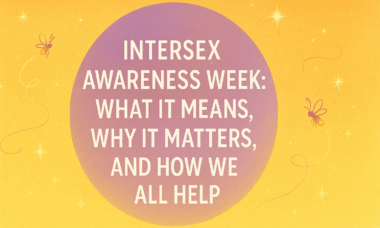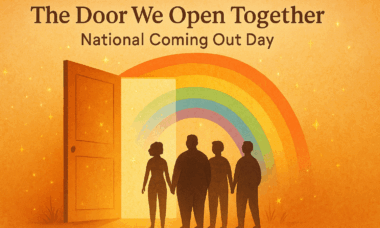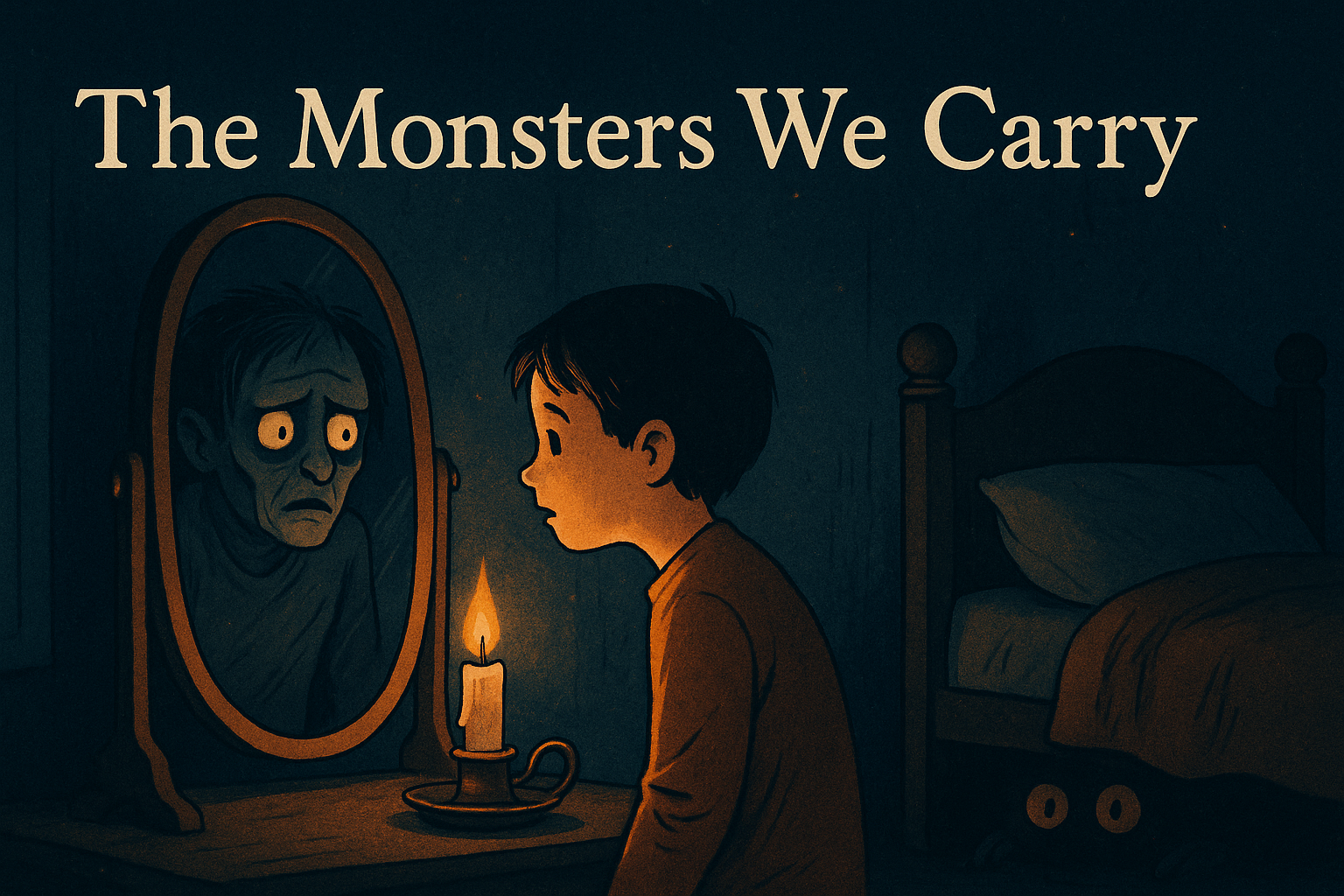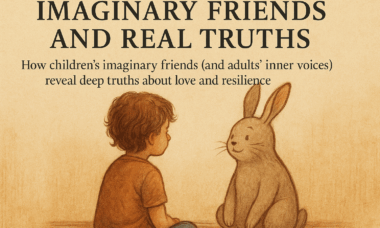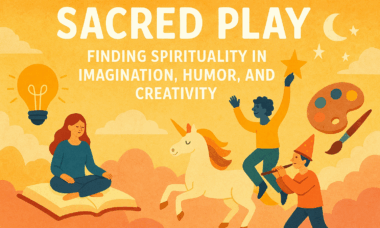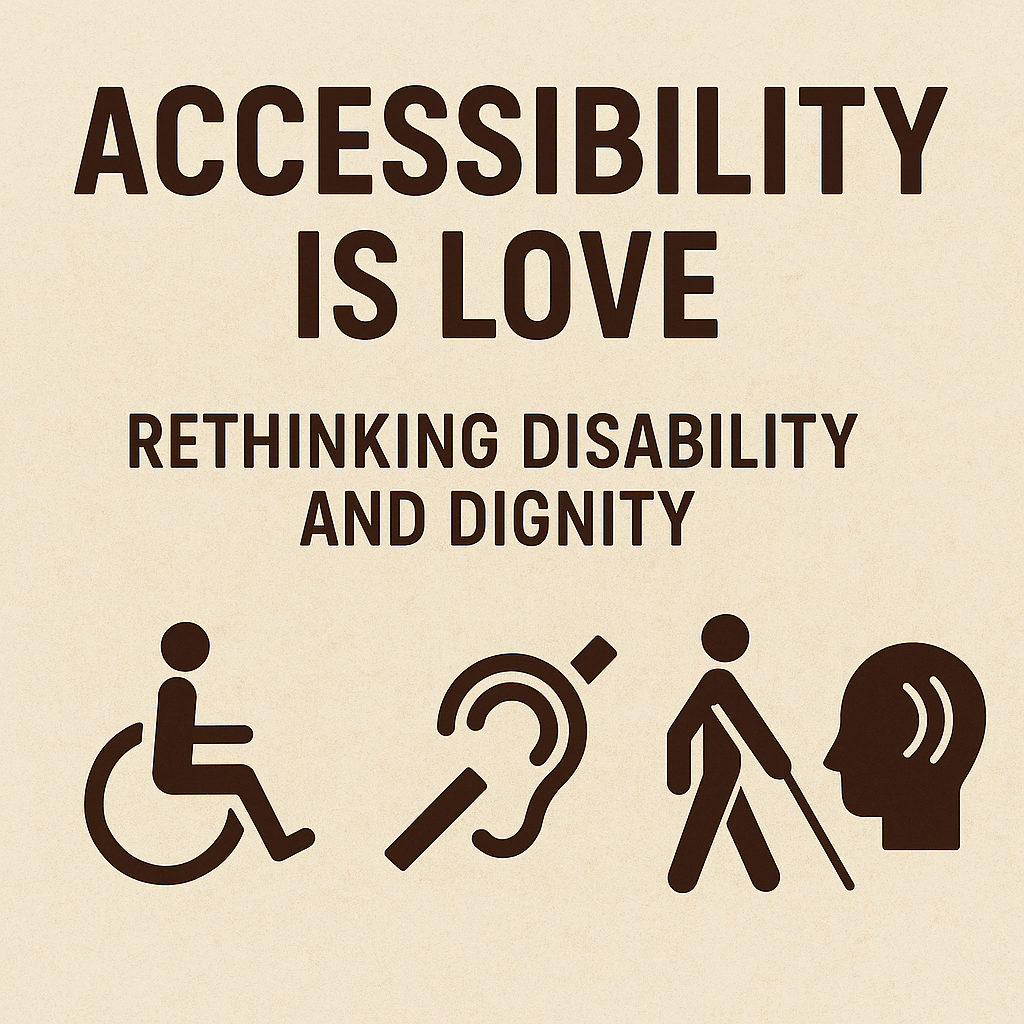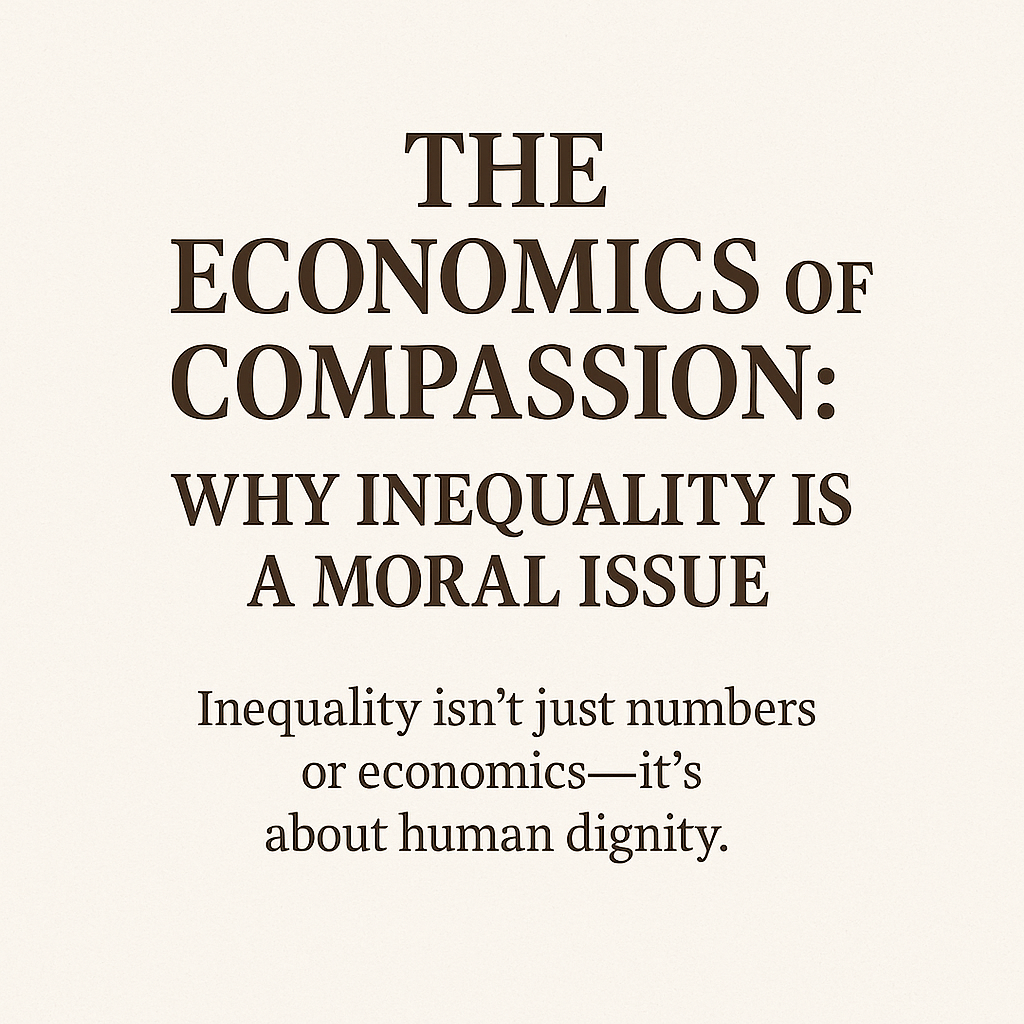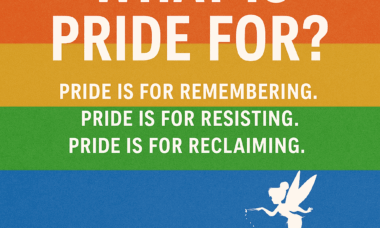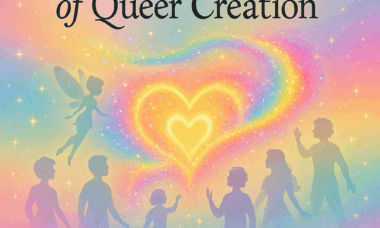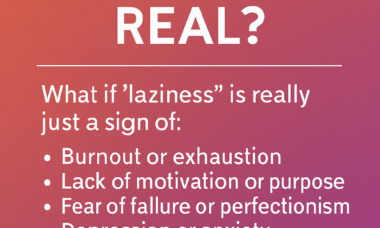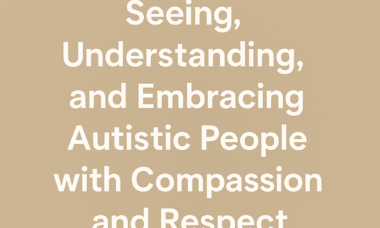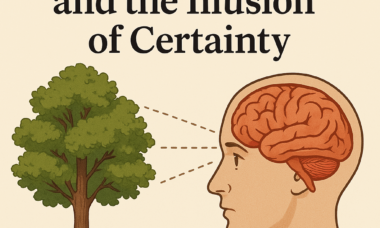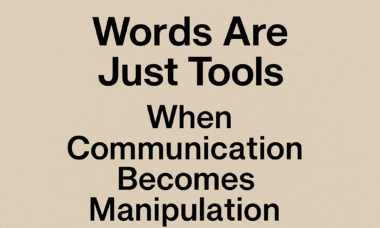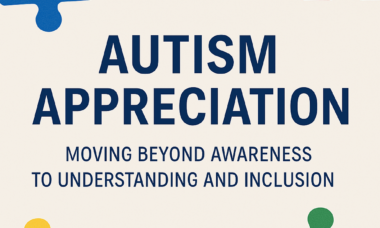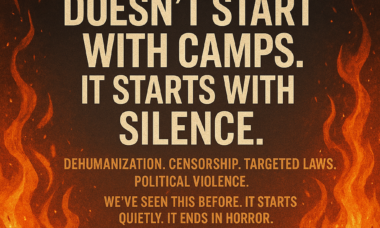Who owns winter: the sun, Jesus, the Maccabees, the Unconquered Sun, or the people lighting dumplings and pomegranates at midnight? 🌟 In this slightly sparkly tour of Yule, Saturnalia, Christmas, Hanukkah, Yalda, Dongzhi, Diwali, Kwanzaa and more, we follow humanity’s favorite coping strategy for long nights: candles, feasts, resistance, and ridiculous amounts of hope. Come for the history, stay for the Universal Winter Lights ceremony you can actually do in your living room.
Read MoreCategory: Blog
The Light We Don’t Withhold: A Church of Tinkerbell Reflection for HIV/AIDS Awareness Month
“The Light We Don’t Withhold” is a Church of Tinkerbell reflection for HIV/AIDS Awareness Month, honoring those living with HIV, remembering those we’ve lost, and confronting the deadly cost of stigma. Grounded in science and radical compassion, it lifts up the truth of U=U, calls for equitable access to care, and invites us to practice a quiet rebellion: kindness without conditions, and light we refuse to keep to ourselves.
Read MoreNative American Heritage Month: More Than a Month of Gratitude
Honoring Native American Heritage Month means more than a land acknowledgment once a year—it’s a commitment to learning the true history of this land, amplifying Native voices, supporting tribal sovereignty, and celebrating the beauty and brilliance of living Indigenous cultures every day, not just in November.
Read MoreIntersex Awareness Week: What It Means, Why It Matters, and How We All Help
Intersex Awareness Week (Oct 26–Nov 8) is a call to learn, listen, and act. This post explains what intersex means, why prevalence estimates vary, the harms of non-consensual surgeries, real progress from hospitals to the U.N., and—through two true-to-life stories—how each of us can support bodily autonomy, dignity, and joyful belonging.
Read MoreDancing with Death: Embracing Mortality to Fully Live
A gentle, wonder-soaked meditation on mortality as a teacher—not an enemy. In this Evernight finale, we dance with Death to return our attention to what matters: love, repair, presence, and everyday courage. Come for the fireflies and candlelight; leave with a pocketful of gratitude and a simple rite to live more fully—today.
Read MoreEvernight: Candles Against the Dark
In Evernight 6: Candles Against the Dark, we widen the lens from inner shadow work to shared resilience. A simple candle walk becomes a ritual of togetherness—neighbors choosing one another, turning fear into warmth, and practicing the ordinary courage that carries us through longer nights.
Read MoreThe Door We Open Together: National Coming Out Day
On National Coming Out Day, we honor the courage of telling the truth—and the lifesaving power of being believed. This piece shares real stories, clears up myths vs. science, and offers simple, actionable ways to be the safe harbor someone deserves.
Read MorePumpkins, Transformation, and the Light Within
In this luminous midpoint of the Evernight journey, autumn becomes a mirror for transformation. Pumpkins, Transformation, and the Light Within invites readers to see how even in darkness, creativity carves space for hope to shine. A story of courage, renewal, and the quiet magic that comes from turning our hollow places into lanterns of light.
Read MoreThe Magic of Shadows
In The Magic of Shadows, we step into the quiet partnership between light and dark — where mystery breathes, imagination stirs, and not knowing becomes a sacred art. This reflection invites you to honor the beauty of what can’t be fully seen, and to find wonder in the places where shadows whisper and light listens.
Read MoreThe Monsters We Carry
In the candlelit hush of Evernight, shadows whisper truths we’ve buried deep. This Halloween, dare to meet the monsters within—and set them free.
Read MoreThe Gift of Chosen Fear
Why do we seek out haunted houses, jump scares, and ghost stories when fear is something we usually try to avoid? In this reflection from the Halloween series, we explore the strange gift of chosen fear — how it awakens us, strengthens us, and even teaches us courage when we need it most.
Read MoreMasks, Costumes, and the Freedom to Play
Step into Evernight, a lantern-lit town where October never ends. In this first Halloween reflection, we celebrate the joy of masks and costumes—the freedom to play, imagine, and reveal hidden parts of ourselves. Alongside the essay, discover a tiny tale: The Night of a Thousand Faces, where mirrors vanish and masks awaken a town to new possibilities.
Read MoreThe Silence Between Notes
The Silence Between Notes invites us to listen not only to the music of sound but also to the music of pause. Reflecting on rests, quiet moments, and the spaces that hold us, this piece explores how silence itself can be a source of beauty, transcendence, and sacred presence.
Read MoreThe Holy Trickster: Why Humor Belongs in Spirituality
What if laughter itself is holy? In this reflection on the sacred role of humor, parody, and satire, we meet the Trickster—the mischievous guide who keeps us humble, joyful, and free.
Read MoreImaginary Friends and Real Truths
We often think of imaginary friends as childhood quirks, but they carry deeper meaning. These companions—whether a child’s invented playmate or an adult’s inner voice—reveal truths about how we practice love, nurture resilience, and hold hope through imagination. This piece explores how the beings we create inside us help us become more fully alive.
Read MoreThe Gospel of Fireflies
In this gentle allegorical tale, we follow the dance of fireflies to uncover sacred lessons about community, rest, rhythm, and the quiet power of sharing your light. The Gospel of Fireflies is a meditation on belonging, the beauty of cycles, and the invitation to blink not for show—but for connection. Let the rhythm carry you.
Read MoreSacred Colors: The Rainbow as Scripture
What if the rainbow was more than a symbol—what if it was scripture? In this meditative and poetic reflection, Sacred Colors: The Rainbow as Scripture explores the rainbow as a living sacred text written in light. Each color becomes a verse, each appearance a revelation. A celebration of beauty, diversity, queer pride, and the holiness of wonder.
Read MoreA Litany of Wonder
A Litany of Wonder is a poetic and meditative journey through the sacredness of everyday life. With reverent attention to the ordinary, this piece invites readers to rediscover awe, delight, and gratitude hidden in plain sight. It’s an offering of sacred play — a reminder that wonder is always near, if we choose to see.
Read MoreImagination as a Compass: Dreaming Better Worlds
Imagination isn’t an escape—it’s a compass. Every movement for love and justice began as a dream someone dared to believe. This post explores how fantasy and storytelling help us envision better worlds—and why reclaiming the right to dream boldly is an act of resistance.
Read MoreThe Sacred Mischief of Fairies
The sacred isn’t always solemn. Sometimes it giggles, trips us up, and ties flowers in our hair. In the playful mischief of fairies, we discover that laughter and delight are every bit as holy as silence and reverence.
Read MoreThe Enchanted Ordinary: Finding Magic in Small Moments
Magic isn’t only found in fairy tales — it’s woven into the everyday. The smell of bread baking, the sound of laughter, or a child’s curious question can become portals to wonder when we pause to notice. The Enchanted Ordinary invites us to rediscover the sacred beauty hidden in life’s smallest moments.
Read MoreBlessings for the Body: A Prayer of Movement
Our bodies are temples of motion and breath. In every stretch, every dance, every inhale and exhale, we offer a sacred prayer of being alive. Blessings for the Body is a meditation on honoring the holiness of movement and breath.
Read MoreThe Religion of Stars: Awe in the Cosmos
The Religion of Stars: Awe in the Cosmos
Before temples and texts, there was the sky. In this reflection, we explore astronomy and the night sky as a form of spiritual practice—one rooted not in dogma, but in wonder. Through science, story, and silence, we rediscover the sacred in the stars.
Sacred Stories We Tell Ourselves
What makes a story sacred? This thoughtful exploration invites readers into a world where myths, fairy tales, and fantasy aren’t just for entertainment—they’re tools for ethical growth, empathy, and wonder. Free from dogma, these stories help us embody deeper truths and reclaim the sacred through imagination and play.
Read MoreTinkerbell’s Theology of Light
A whimsical journey through candles, stars, fireflies, and rainbows—exploring how light reveals the heart of compassion, truth, and joy in Tinkerbell’s theology of wonder.
Read MoreThe Magic of Everyday Rituals
Discover the quiet magic in your daily routines. From morning coffee to evening candles, everyday rituals can become sacred pauses that bring presence, grounding, and a touch of wonder into ordinary life.
Read MoreSacred Play: Finding Spirituality in Imagination, Humor, and Creativity
What if spirituality wasn’t about the supernatural, but about the magic of imagination, humor, and creativity? In this Sacred Play post, we explore how wonder, laughter, and artistic expression can become sacred practices—ways to find meaning, connection, and awe in everyday life.
Read MoreAccessibility Is Love: Rethinking Disability and Dignity
Accessibility isn’t charity—it’s love in action. True dignity means removing barriers and building communities where everyone belongs. 💜 Read more in Accessibility Is Love: Rethinking Disability and Dignity.
Read MoreThe Economics of Compassion: Why Inequality Is a Moral Issue
Inequality isn’t just an economic issue—it’s a moral one. When wealth gaps deny people healthcare, housing, and dignity, we fail as a society. Compassionate economics means valuing people over profit and building systems rooted in fairness, love, and acceptance.
Read MorePorn with Purpose: How Ethical, Mindful Use Can Enhance Your Life
An honest and thoughtful guide to porn use that ditches the shame and explores how ethical, mindful consumption can support self-discovery, emotional well-being, and healthy relationships.
Read MoreWhat Is Pride For?
In What Is Pride For?, The Church of Tinkerbell breaks down the soul of Pride Month beyond the rainbows and parades. This heartfelt guide reclaims Pride as a sacred space for remembering, resisting, reclaiming, and becoming. Whether you’re questioning, celebrating, grieving, or healing—this is a love letter to you, and a reminder that Pride is for anyone who’s ever been told to dim their light.
Read MoreJuneteenth: The Celebration They Never Wanted Us to Have
Juneteenth is not just a celebration—it’s a declaration. A fire lit in the dark corners of oppression that still burns today. We honor the strength of those who waited too long for freedom, and we carry their fight forward with truth, courage, and fierce compassion. Read our latest post at thechurchoftinkerbell.com.
Read MoreThe Queer Prophets Were Always Here
The Queer Prophets Were Always Here is a bold, affirming blog article from The Church of Tinkerbell that lifts the veil on LGBTQIA+ erasure and celebrates queer people throughout history and culture as sacred truth-tellers. From ancient roles to modern acts of courage, this piece reclaims queerness as legacy, resistance, and revelation — and honors all who carry that flame today.
Read MoreYou’re Not Broken. You’re a Miracle.
“You’re Not Broken. You’re a Miracle.” is a tender, powerful message from The Church of Tinkerbell for anyone who has felt unworthy, unloved, or out of place. This blog article gently dismantles internalized shame and reclaims queerness, neurodivergence, and difference as sacred expressions of life. A spiritual love letter for Pride – and for every day you need to remember you were never a mistake.
Read MoreWhen the World Says “Hide,” Pride Says “Shine”
This powerful Pride Month reflection from The Church of Tinkerbell explores how shame and conformity are taught—and how queer existence is a sacred act of resistance. “When the World Says ‘Hide,’ Pride Says ‘Shine’” is a call to reclaim your light, your love, and your truth. Whether you’re loud or quiet, out or not, this is your invitation to shine.
Read MoreThe Sacred Spark of Queer Creation: What Tinkerbell Taught Us About Being Ourselves
Celebrate the radiant power of queerness with The Church of Tinkerbell’s Pride Month kickoff article, “The Sacred Spark of Queer Creation.” This magical reflection honors the beauty of being fully yourself, drawing inspiration from Tinkerbell to affirm that queer identity is a sacred, creative force. It’s a love letter to the unbecoming, the becoming, and the brilliant in-between.
Read MoreUnderstanding Pedophilia: Destigmatization, Compassion, and Prevention
This article explores the misunderstood topic of pedophilia with compassion and clarity, separating attraction from action, highlighting the moral strength of non-offending individuals, and offering confidential, nonjudgmental resources for those seeking help to protect children and live ethically.
Read MoreThe Hidden Costs of Covering Up: How Clothing Rules and Body Shame Hurt Kids—and How to Create a Home of Body Freedom
A deep exploration of how clothing restrictions and shame-based modesty harm both neurotypical and neurodivergent children, and practical guidance for creating a home of body freedom, safety, and acceptance—empowering kids to feel comfortable, confident, and unashamed in their own skin.
Read MoreMental Health Awareness Month: Why It Matters for All of Us
May is Mental Health Awareness Month—a time to prioritize mental well-being, support those who struggle, and work toward a world where mental health care is accessible and stigma-free.
Read More420 Easter: He Is Risen (So Are We)
Easter and 4/20 fall on the same day this year (2025), and we’re celebrating with holy herbs and high spirits. Join us for a satirical sermon on elevation, divine munchies, and the miracle of marijuana. Amen. Pass the lighter.
Read MoreHelping Others Accept the Truth About LGBTQIA+ People: A Path Beyond Indoctrination
This blog post explores how to help people move beyond religious indoctrination to understand and accept the truth about LGBTQIA+ identities. Drawing from personal experience, it offers compassionate strategies rooted in empathy, critical thinking, and shared values.
Read MoreIs Laziness Real? Understanding Motivation, Struggle, and the Human Experience
This article challenges the common belief that laziness is a character flaw, revealing it as a symptom of deeper struggles like burnout, fear, mental health challenges, or neurodivergence. It explores the real reasons people struggle with motivation and offers practical, compassionate strategies for working with those challenges. A helpful resource section provides further tools and support for readers seeking understanding or change.
Read MoreSeeing, Understanding, and Embracing Autistic People with Compassion and Respect
This article explores how to truly see, understand, and embrace autistic people with compassion and respect. It offers practical insights into communication and sensory differences, real-world examples, and actionable strategies for building inclusive, meaningful connections—highlighting the universal human need for love, dignity, and belonging.
Read MoreBiblical Prophecy, Fictional Fulfillment, and the Question of Jesus
This post critically examines biblical prophecy, highlighting failed predictions, misapplied Old Testament verses, and the possibility that Jesus’ story was constructed to fit pre-existing texts. It challenges the idea of divine foresight by exploring how narratives may have been shaped after the fact—and even questions whether the central figure of Christianity existed at all.
Read MoreThe Brain, Belief, and the Illusion of Certainty
This post explores how the human brain constructs our experience of reality—both external and internal—and why that can lead to deeply felt but conflicting beliefs about gods, spirits, morality, and truth. It invites readers to examine the stories their minds generate, recognize the illusion of certainty, and adopt more reliable tools for understanding the world with curiosity and compassion.
Read MoreWords Are Just Tools: When Communication Becomes Manipulation
This post explores the true nature of communication, emphasizing that words are merely tools for transferring meaning. It highlights how miscommunication—especially when used intentionally—can be a manipulative tactic employed by politicians, evangelists, and apologists. True dialogue requires clarity, shared definitions, and a commitment to mutual understanding. Winning an argument through miscommunication is not a real victory; it’s a performance, not a pursuit of truth.
Read MoreWhen Shame Is Taught: How Society’s Fear of Nudity Harms Children
This post explores how society’s fear and shame around nudity negatively impact children—shaping their body image, emotional development, and ability to communicate. It challenges harmful cultural and religious norms, and advocates for a healthier, more respectful view of the human body.
Read MoreThe Day We Covered Ourselves (A Mythical Tale of Body and Belief)
Long ago, in the time before time was measured, humans walked the earth with nothing …
Read MoreAutism Appreciation: Moving Beyond Awareness to Understanding and Inclusion
This blog post encourages a shift from “Autism Awareness” to “Autism Appreciation,” highlighting the value of autistic people and their diverse ways of thinking and being. It debunks myths, amplifies autistic voices, celebrates strengths, and promotes true inclusion. The article offers practical ways to support and appreciate autistic individuals and includes trusted resources for further learning.
Read MoreMy Daughter Is Thirteen
My daughter is thirteen. And the world wants to pretend she’s not. They see a …
Read MoreWhy Doesn’t My Sister Talk?
Sometimes I ask Mommy,“Why doesn’t my sister talk like me?” Mommy says, “She talks in …
Read MoreThe Noise Room
I wake up because something hurts. It’s the light. It’s so bright it slices across …
Read MoreMy Brother Doesn’t Say Much
My brother doesn’t say much. Sometimes he doesn’t say anything at all. He hums and …
Read MoreA Moment of Peace
No one is here. Just me and the soft blanket and the light through the …
Read MoreSaying “I Love You”
I see you. You’re smiling. You talk to me gently. You remember my favorite sound …
Read MoreThe Classroom
The room is buzzing. Not with bees, but with lights and words and chairs scraping …
Read MoreThe Slippery Path We’re On: How the Current Presidential Administration Is Enabling the Conditions for Genocide and Eugenics
The idea of genocide or eugenics happening in the United States may sound unthinkable to …
Read MoreHealing from Shame: How Body-Positive Culture Can Help Undo Over-Sexualized Responses to Nudity
In this post, we dive into the deep impact of growing up in a body-shaming, purity-driven culture—and how those early messages shape our inner responses to nudity and sexuality. We explore how cultures like the Netherlands and Scandinavia approach the body with openness and respect, and what we can learn from them. Most importantly, we walk through practical, compassionate steps for healing from shame, unlearning over-sexualized reactions, and reclaiming a sense of safety and joy in our own skin. Whether you’re deconstructing purity culture, healing from trauma, or simply curious about body positivity, this episode offers insight, tools, and hope.
Read More“Oops, We Bombed Again”: The Trump 2.0 Administration Texts War Plans to a Journalist, and Nobody Notices
By now, you’ve probably heard the phrase “loose lips sink ships.” But in 2025, apparently, …
Read MoreThe Real Beginning of Wisdom: A Modern Look Beyond Fear
For generations, many Christians have quoted Proverbs 9:10:“The fear of the Lord is the beginning …
Read MoreThe Weaponization of Detransition: How Republicans Are Using Rare Cases to Undermine Trans Rights
Republican lawmakers have weaponized the rare phenomenon of detransition to attack transgender rights, using “Detrans Awareness Day” as a political tool rather than an effort to genuinely support detransitioners. In reality, studies show that detransition is rare, with the vast majority of cases occurring due to external pressures such as discrimination, financial barriers, and lack of support—not because individuals regret transitioning. Research confirms that only 1-2% of trans people detransition due to identity-related reasons, while gender-affirming care has extremely low regret rates (below 1%).
By exaggerating detransition cases and falsely presenting transition as inherently dangerous, conservatives are misleading the public, justifying bans on gender-affirming care, and making it harder for trans people to live safely and authentically. The real solution is reducing societal stigma, increasing support for trans individuals, and ensuring access to affirming care. Rather than focusing on misleading narratives, we should work toward a world where all gender-diverse individuals can thrive without fear or coercion.
Read MoreLegislative Actions on Trans Rights
This blog post explores the recent wave of legislative actions targeting transgender rights, focusing on Wyoming and its passage of multiple restrictive bills. It examines the broader national trend, highlighting similar measures in states like Iowa, Kansas, Montana, and Alabama, as well as federal-level policies such as Executive Order 14187. The post analyzes the impact of these laws on the transgender community, including threats to healthcare access, legal recognition, and personal safety. It also discusses the growing movement of transgender individuals relocating to more supportive states in response to these policies. The piece underscores the urgent need for awareness, advocacy, and legal challenges to protect transgender rights in the face of increasing restrictions.
Read MoreLegislative Attacks on Trans Rights: How States Like Wyoming Are Restricting Equality and What It Means for the Future
In recent years, a notable shift has occurred across the United States, with numerous legislative …
Read MoreSupreme Court’s Review of Conversion Therapy Bans: What’s at Stake for LGBTQ+ Rights?
The U.S. Supreme Court’s decision to review state bans on conversion therapy for LGBTQ+ minors could have far-reaching implications for LGBTQ+ rights nationwide. This case raises critical questions about free speech, religious liberty, and the protection of vulnerable youth from harmful and discredited practices. A ruling in favor of the bans would affirm states’ authority to regulate medical and psychological care, while a decision against them could undermine protections and embolden anti-LGBTQ+ efforts. This article explores the legal stakes, potential outcomes, and the broader impact on LGBTQ+ rights in America.
Read MoreTrailblazing Women: Celebrating the Achievements of Women Past and Present
The Importance of Celebrating International Women’s Day Every year on March 8, the world comes …
Read MoreThe Power of Representation: How Inclusive Children’s Programs Shape a Better World
Children’s television is more than just entertainment—it’s a window into the world, a way for …
Read MoreDistinguished Black Officer Fired During Black History Month
In a controversial move during Black History Month, President Trump dismissed General Charles Q. Brown Jr., a highly qualified Black military leader, replacing him with a less experienced white officer. Simultaneously, his administration has dismantled DEI programs, signaling a rollback on diversity and inclusion efforts. The Church of Tinkerbell raises its voice against this erosion of equality, urging America to stand up for freedom, diversity, and justice before these essential values are lost.
Read MoreCelebrating Black History Month: Honoring Diversity, Resilience, and Excellence
In a time when efforts to erase or diminish diversity, equity, and inclusion (DEI) initiatives …
Read MoreThe Erosion of Rights: A Systematic Threat to Democracy
Across the globe, and particularly in the United States, fundamental human rights are facing unprecedented …
Read MoreAOC, Know Your Rights, and the Battle Over Public Awareness
Recently, U.S. border czar Tom Homan called for the Department of Justice (DOJ) to investigate …
Read MoreThe History of Gender Identities and Sexual Orientations Beyond the Binary: Understanding Prejudice and Society
Throughout history, diverse expressions of gender identity and sexual orientation have existed across cultures, often …
Read MoreNeverland’s Valentine: A Celebration of Every Heart
In the heart of Neverland, where time stood still and every star shimmered with endless …
Read MoreErasing Sovereignty: How Immigration Enforcement is Hurting Native Communities
As of February 2025, the Trump administration has not implemented any official policy to deport …
Read MoreTrump’s Removal of Sex and Gender Science From Government Raises More Red Flags
On January 20, 2025, President Donald Trump signed Executive Order 14168, titled “Defending Women from …
Read MoreCensorship in Science: The Trump Administration’s Ban on Key Public Health Terms
In a move that has sparked outrage among scientists, public health experts, and civil rights …
Read MoreTennessee’s New Immigration Law: A Direct Assault on Democracy and the Constitution
In a stunning move that undermines both constitutional rights and democratic principles, Tennessee has passed …
Read MoreTrump, Musk, and the Battle for AI Influence: Shaping the Future of Artificial Intelligence
Artificial intelligence is at the heart of the 21st century’s technological revolution, and two of …
Read MoreAre Trump’s Over-the-Top Moves Just a Diversion for Something Worse?
In recent weeks, the Trump administration has made a series of bold, controversial moves, ranging …
Read MoreNPR and PBS in Trump’s Crosshairs
In recent developments, President Donald Trump, entrepreneur Elon Musk, and Representative Marjorie Taylor Greene have …
Read MoreAmerica First Update – February 1, 2025
In his second term, President Donald Trump has swiftly enacted several initiatives under the “America …
Read MoreThe First Thanksgiving
The True Story of the First Thanksgiving The traditional narrative of Thanksgiving, celebrated annually in …
Read MoreEternal Portraits: A History of Post-Mortem Photography
In the shadows of history, there exists a realm where the living and the dead …
Read MoreProject 2025: A Clear and Present Danger
In the turbulent landscape of contemporary politics, few initiatives spark as much controversy and fear …
Read MoreMonogamy Explained
From our popular songs to our books and movies, one person finding that other one …
Read MoreSphen and Magic, a Gay Couple at Sea Life in Sydney, are Proud Dads
Two penguin dads, Sphen and Magic, have hatched their second egg. Gay penguins adopting abandoned …
Read MoreResponse to PragerU’s “History of Slavery”
Was slavery started by “white” people? Did they put an end to it in this …
Read MoreJohn Singleton Nominated for Academy Award
In 1929, the first Academy Awards took place. As might be expected for that period …
Read MoreBernard Harris Jr.
Many of us have dreamed, perhaps as a child or as an adult, of boarding …
Read MoreWhy Kink is Inherent to Pride, and Why It’s Complicated
Some people have complained about the risqué outfits worn by some at Pride events, while …
Read MoreRosa Parks
On February 4th of 1913, Rosa Parks was born. On December 1st, 1955, Rosa, a …
Read MoreThe Greensboro Four
You’ve probably heard of The Three Musketeers, Robin Hood’s Merry Men, and other groups of …
Read MoreEvolution Through a Programmer’s Eyes
A software programmer created the conditions for evolution in an attempt to learn something about …
Read MoreHappy Birthday, Dr. Martin Luther King, Jr!
Dear Dr. Martin Luther King Jr, Since you’ve been gone, we here on earth have …
Read MoreMartin Luther King Jr.
Today we remember January 15, 1929, on which day Martin Luther King Jr. was born. …
Read MoreBusting Climate Change Myths
Is climate change real? Is it caused by humans? Is it a big deal or …
Read MoreWhy Humans Believe in Gods
Why do we tend to believe in a god or gods? Why does his/her/their existence …
Read MoreBe Yourself, Please
This picture is from Second Life. It is my avatar Mariposa Psaltery. Every day when …
Read MoreIs Free Will an Illusion?
In this video, the presenter argues that free will is an illusion. You have no …
Read MoreBrain Systems That Control Your Behavior
You have three brains—the triune, the limbic, and the cortex—and they’re all fighting for dominance …
Read More13 Myths About Parenting Teens
Pediatrician Blair Hammond and developmental psychologist Aliza Pressman debunk 13 myths about parenting teens. They …
Read MoreDon’t Set Goals, Set Systems
You’ve just achieved a goal you’ve been working towards for two years. You did it! …
Read More10 Ways to Have a Better Conversation
When your job hinges on how well you talk to people, you learn a lot …
Read MoreThe Trail of Tears: Not One, but Many
Over two decades, the U.S. Government stole Native land and relocated about 88,000 people. About …
Read MoreWhy You Shouldn’t Emulate Geniuses
How do you get out of a mental feedback loop? The smartest people—call them geniuses …
Read MoreWhen Dreams Educate
Just like anyone else, I like to take naps when I need to. Today I …
Read MoreThe “+” in LGBTQIA+
This acronym started as simply LGB, which stood for Lesbian, Gay, and Bisexual, and began …
Read MorePurple = Spirit
Purple = Spirit “That’s the spirit!” Many of us (if not all of us) have …
Read MoreThe “A” in LGBTQIA+
The “A” in LGBTQIA+ is used to represent those who are asexual, or sometimes agender, …
Read MoreThe “I” in LGBTQIA+
The “I” in LGBTQIA+ stands for Intersex. It’s estimated that 1.3% of people are born …
Read MoreThe “Q” in LGBTQIA+
The “Q” in LGBTQIA+ stands for Queer or Questioning. According to their description of the …
Read MoreThe “T” in LGBTQIA+
The “T” in LGBTQIA+ stands for Transgender. This refers to someone whose gender does not …
Read MoreBlue = Harmony
The blue of the pride flag represents harmony. The word harmony reminds me of singing. …
Read MoreThe “B” in LGBTQIA+
The “B” in LGBTQIA+ stands for Bisexual. A lot of people, even those in the …
Read MoreGreen = Nature
The green of the pride flag represents nature. Trees, grass, streams, and so many other …
Read MoreHappy Juneteenth 2021!
On June 19, 1865, Union Army general Gordon Granger announced General Order No. 3 which …
Read MoreYellow = Sunlight
It is no accident or a coincidence that the yellow of the pride flag represents …
Read MoreOrange = Healing
The orange in the pride flag represents healing. The LGBTQIA+ community encourages everyone to nurture …
Read MoreRed = Life
The red in the pride flag represents life. Life. Each and every person has the …
Read MoreThe “G” in LGBTQIA+
I don’t know about you, but I was never given the opportunity to chose who …
Read MoreMission: Introducing PurpleFairy
Hello. My name is PurpleFairy. Or is it? Your mission my fellow fairies is to …
Read MoreThe “L” in LGBTQIA+
This month, June 2021, we celebrate Pride — Pride in who we are in terms …
Read MoreTemper Tantrums
Temper tantrums are more complex than just a toddler’s unbridled rage. And recent research into …
Read MorePopularity of Bible Proves Tinkerbell True
Disclaimer: This article is not intended to support or reject the Bible or its claims. …
Read MoreThe Moral Argument
All people have an instinctive sense of what is right and wrong. Even remote tribes …
Read MoreThe Fine-Tuning Design Argument
The fine-tuning argument is frequently used to attempt to prove the existence of a supernatural …
Read MoreThe Leibnitzian Cosmological Argument
The Leibnitzian cosmological argument builds upon the principle of sufficient reason: Everything that exists has …
Read More



